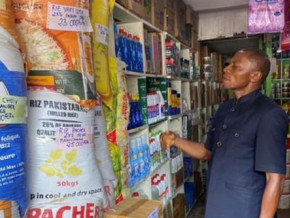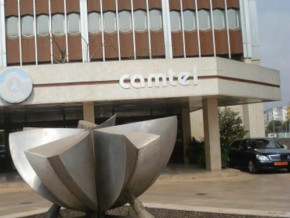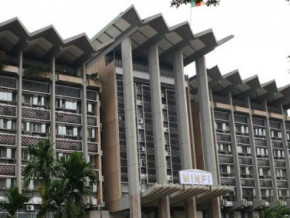
Luc Magloire Mbarga Atangana: “We must believe in our cocoa (...) As long as the world will exist, cocoa production will exist...”

(Business in Cameroon) - Visiting the town of Ayos, a cocoa production area in the Central region of Cameroon, in the latter part of the previous week, Luc Magloire Mbarga Atangana encouraged producers not to give in to despondency, in spite of the difficult situation for world cocoa prices. “We must believe in our cocoa. There is no cause for despair (...) As long as the world will exist, cocoa production will exist...”, he declared.
Indeed, according to the data compiled by the Système d’information des filières (Sif – Sector Information System), a system enabling the daily publication of average cocoa and coffee prices in Cameroon, one kilogram of beans is sold for FCfa 900 to 960 on average since March. Recently, in several production areas in the country, the same quantity of beans sells for FCfa 800 to 700, according to producers.
Long gone is the period when farm gate prices for Cameroonian cocoa peaked at FCfa 1,500 or even 1,600 per kilogram, often leading Minister Mbarga Atangana to say that Cameroonian producers are “the best paid in the world”.
To enable Cameroonian producers to better resist the decline in international prices, this government member, once again, during his visit in Ayos, extoled the benefits of local processing; and good agricultural practices, which result in making available on the market good quality products and win new, more profitable niche markets.
As a reminder, the quality of the Cameroonian cocoa remains a source of major concern for operators in the sector and for the government. During the 2015-2016 season, for example, approximately 97% of exported beans were of grade II, while“only 81% of beans were declared as checked”, based on the end of season report issued by the cocoa-coffee professional association.
On the processing side, it is not much better. Based on official statistics, during the 2015-2016 season, less than 50,000 tons of beans were locally processed, out of a sold production of over 269,000 tons. This performance, which reveals the dependency of Cameroonian producers on international cocoa prices, represents less than 15% of the grinding targets projected by the operators in the sector and the government by 2020 (300,000 tons), as part of the recovery plan for the cocoa and coffee sectors.
Brice R. Mbodiam
Mags frontpage
- Most read 7 days
- shared 1 month
- read 1 month






























